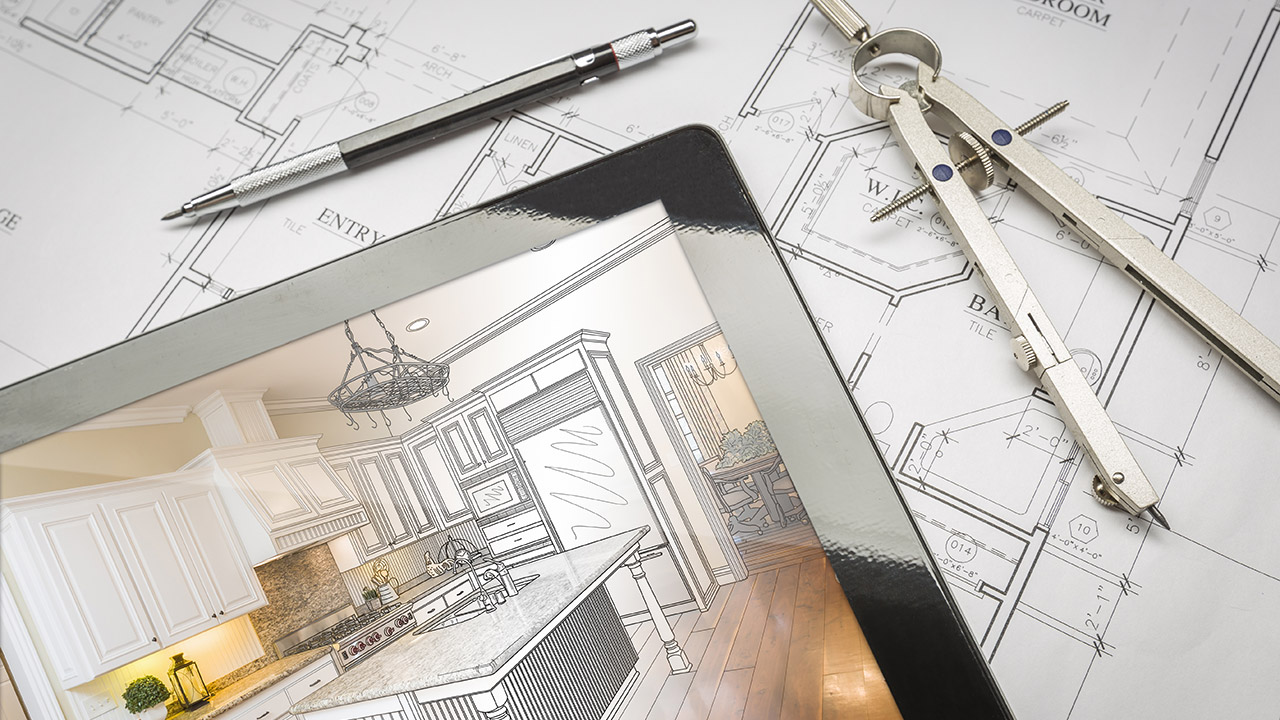There’s no one easy equation to use to determine exactly how much a home renovation will cost. You can’t just multiply a specific unit price and multiply it by the square footage of the area you plan to remodel.
It’s very easy to go way over budget when you’re in the middle of a project, but that’s usually because certain steps weren’t taken beforehand, and no contingencies were accounted for.
While there’s no fool-proof way of making 100% certain that you won’t go over budget, the following steps can help ensure you stay as close to it as possible.

Hire the Right Contractor
Don’t hire the first contractor you talk to, no matter how great they may sound. When it comes to home construction, it’s always best to get at least three quotes from different contractors so you can compare their price, professionalism, and what they offer.
While the price is obviously an important factor to consider, it shouldn’t be the only one. It might be tempting to go with the cheapest quote, but you need to be careful if the price is too low. It might just be that you’re getting a discount by sacrificing the quality of work or building materials.
Ideally, the contractor you hire should provide you with a price for the project based on a very detailed, line-by-line estimate of every item and associated charge. This can include anything from the price for large items like the kitchen cabinets or hardwood floor planks, to smaller components such as the price of each light fixture or door handles. The more detailed the estimate, the better at helping you understand exactly how much you’ll be spending at the end of the day.
Plan Out Your Project in Great Detail
Your contractor should be able to establish a step-by-step plan for your project. This will help you understand how much you’ll need to put into your overall budget, and how that money will be spent at various intervals of the project.
The more detailed your plan, the more prepared you will be for all the incoming expenses related to getting the job done. Make sure all the necessary decisions are made from the get-go so you don’t wind up making last-minute decisions that could blow your budget.
Whether it’s the floor tiles, backsplash, plumbing fixtures, trim, sink, countertop, or any other component, they should be decided upon before your plan is solidified. Every single cost that’s not accounted for at the planning stage will only creep up on you and end up costing you more than what you initially anticipated.
Making last-minute decisions during the project can be stressful. Instead, have your contractor and/or architect draft a detailed set of drawings and set of events and make all of the important decisions before construction starts.
Don’t Stray From Your Plan
Once the plan has been mapped out, don’t change your mind. Even if you’re tempted to do so, resist the urge. Ideally, you would have given yourself enough time to make all the right decisions before construction. Preparing and sticking to your plan is the best way to keep your budget on track.
Your budget will definitely suffer if you start thinking about tacking on other little projects here and there. After all, you’re in the middle of construction, so you might as well add this and fix that, right?
Wrong. As soon as you start that line of thinking, you’ll be adding in a few extra hundred bucks here and there, which will definitely add up. Remember the plan you made up at the beginning, and stick to it.
Focus on Features Most Important to You (and Be Open to Cutting Corners on Others)
Write out a detailed list of all the things that are of greatest importance to you and can’t be negotiated. That could be granite counters in the kitchen, thick hardwood floor planks in the living room, or detailed crown molding in the dining area. When you’re coming up with a budget, allocate the necessary funds to these specific items that you’re simply unable to go without. All other features can be negotiated or even skimped on to suit your budget. Basically, your primary objectives should influence your monetary decisions.
Distinguish Every Component to Be Paid For
Homeowners have a tendency to identify and price out only the largest, most obvious pieces in the overall cost of construction, such as kitchen cabinets or marble floor slabs. But there are other costs that need to be accounted for, such as permits, decor, furniture, and even shipping fees.
Right from the start, identify every single cost of the project and place a price value beside each. You wouldn’t be too pleased if you finished the project only to realize you have no money left for clean-up or furnishings.
Pad Your Budget With a Contingency
Once you’ve calculated the final figure for the overall cost of your renovation project, tack on another 10% to 15%. While the above steps will help to make sure to stick closely to your budget, anything can happen. You might rip out drywall only to discover shoddy electrical work or asbestos. Unpleasant surprises like these will mean additional work and costs will be needed.
To make sure you’ve got the funds to cover these additional costs, adding a contingency to your budget will help a great deal. If you’re one of the lucky ones who doesn’t stumble upon any surprises, you can use that extra cash to add something a little extra. Or else, throw it in the bank and sit on it.
The Bottom Line
Staying on budget means taking the time and effort to find the right professionals, being very specific and detailed about the work involved and cost associated with it, and remaining compliant with the original plan. Determining the realistic cost of the project and making sure you don’t go over budget is a fine art, but it’s doable for anyone willing to put forth the effort.